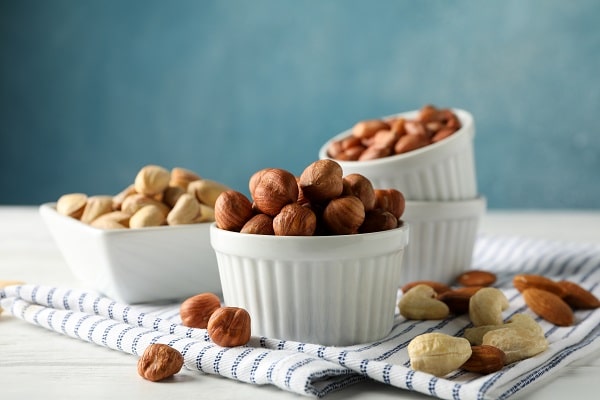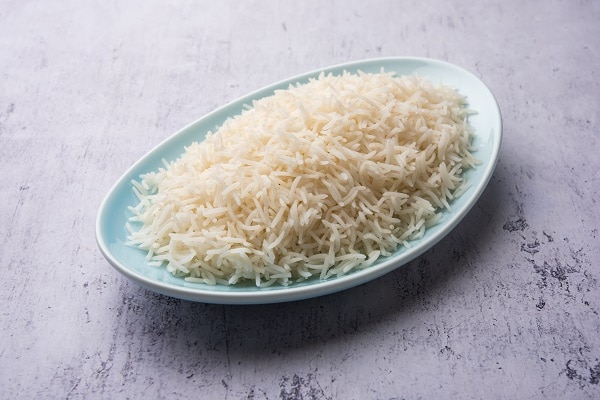There are a lot of food myths out there. You’ve probably heard them all: eating late at night will make you fat, carbs are the enemy, you need to drink eight glasses of water per day. But what are the facts? Are these myths true, or have they been debunked? This article will explore the top 8 food myths and why they are wrong. Stay tuned – you might be surprised by what you learn!
Eating Late at Night Will Make You Fat

Gaining weight by eating at night is one of the most persistent food myths out there. And it’s also one of the biggest misconceptions. Eating late at night will not make you fat. There is no evidence to support this claim. So how did this myth get started?
One theory is that people tend to eat more when tired, and their metabolism slows down at night. However, studies have shown that late-night eating does not affect weight or metabolism. So if you’re looking to lose weight, don’t worry about cutting out late-night snacks.
Another theory is that people who eat late at night are more likely to be overweight or obese. But again, research does not support this claim. A study in the American Journal of Clinical Nutrition found no difference in weight between people who ate late at night and those who didn’t.
Carbs Are The Enemy

Carbs aren’t the enemy; in fact, they’re an essential component of a balanced diet. Carbohydrates provide your body with energy, help regulate blood sugar levels, and support brain function. So why do so many people believe that carbs are bad for you?
One reason is that many processed foods contain high amounts of unhealthy carbs, such as sugar and white flour. These types of carbs can lead to weight gain and health problems. But that doesn’t mean all carbs are bad for you. Many healthy carbs, such as whole grains, fruits, and vegetables, can help you lose weight and improve health.
Drinking Eight Glasses of Water a Day is Essential

You’ve probably heard that you need to drink eight glasses of water a day to stay healthy. But the truth is there is no scientific evidence to support this claim. So how much water should you drink? That depends on several factors, including your age, activity level, and climate. The best way to know if you’re getting enough water is to listen to your body. If you’re thirsty, drink water. And if you’re not, you don’t need to force yourself to drink eight glasses a day.
Caffeine Causes Dehydration

Caffeine does not cause dehydration, as has been shown. It can aid in the hydration process. How is that possible? Caffeine helps your body absorb water and prevents it from losing water through urine. So if you’re looking for a way to stay hydrated, caffeine may be the answer. Just be sure to limit your intake to no more than 400 milligrams per day (about four cups of coffee).
Eating Fat Makes You Fat

Eating healthy fats can help you lose weight and improve your health. So what are healthy fats? Some examples include olive oil, avocados, nuts, and seeds. These foods contain essential fatty acids, which are important for many functions in the body, including regulating blood sugar levels and maintaining heart health. So don’t be afraid to add some healthy fats to your diet!
Eating Breakfast Helps You Lose Weight

There is no evidence to support the claim that eating breakfast helps you lose weight. There is evidence to suggest that eating breakfast may lead to weight gain. A study published in the American Journal of Clinical Nutrition found that people who ate breakfast were more likely to be overweight or obese than those who didn’t eat breakfast.
Sugar Causes Kids To Be Hyperactive

Yet another food myth that has been debunked by science, sugar does not make children hyperactive, as was previously thought. When it comes to youngsters’ conduct, sugar is not the source of all evil.
The real culprits are artificial sweeteners and food additives. These ingredients can harm kids’ behavior and health. So if you’re looking for a way to improve your child’s behavior, try removing artificial sweeteners and food additives from their diet instead of cutting out sugar.
The Three-Second Rule

This is a food myth that has been around for a long time. But the truth is the three-second rule is not based on science. There is no evidence to support the claim that you can safely eat food that has been dropped on the floor if you pick it up within three seconds.
Research shows that bacteria can contaminate food within milliseconds. So if you drop something on the floor, don’t eat it! Throw it away instead.
Red Meat Is Bad For You

Red meat is not bad for you. It can be a healthy part of your diet.
Red meat is a good source of protein, zinc, and iron. It also contains vitamin B12, which is important for the health of your nervous system. So if you’re looking for a way to boost your protein intake, red meat may be the answer. Just make sure to eat it in moderation and choose leaner cuts of meat whenever possible.
You Shouldn’t Reheat Rice

You can safely reheat rice without any risk of food poisoning. Reheating rice kills any bacteria that may be present in the food. So if you’re looking for a quick and easy way to make a meal, reheating rice is a perfectly safe option.
Conclusion
The next time you hear someone repeating one of these misconceptions, set them straight! Science has shown that these foods are safe to eat in moderation and can even be part of a healthy diet. So don’t be afraid to enjoy them!


